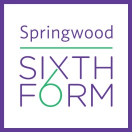British Values
The government set out their definition of British Values in the 2011 Prevent Strategy. These were reinforced in September 2014. The new regulations sit alongside the requirements of the Equalities Act, which also applies to all schools/academies in the UK.
The Department of Education's five-part definition of British Values are:
- democracy
- the rule of law
- individual liberty
- mutual respect
- tolerance of those with different faith and beliefs
These values are complementary to those that underpin our everyday activity in 6th form, such as the belief in education to shape the lives of individuals; the value of hard work; equality of opportunity and accountability to students, their guardians and the wider community.
Furthermore, these values are reinforced through the curriculum; through the enrichment and work experience programme; through our PSHE programme; through numerous travel opportunities and through the engagement of students with democratic processes, such as the Youth Parliament and participation in the sixth form council.
Democracy – In addition to the taught elements of the curriculum in which aspects of democracy are explicitly taught – such as, History, PHSE, Criminology and Geography – we provide students with a real experience of democracy through the annual election of Head Students. Once elected, Head Students work with the Student Council which consists of representatives from each year group in order to discuss and influence the future direction of sixth form. Students also engage in the Youth Parliament and, when there is a local or national election, the sixth form mirrors these democratic processes, hosting hustings for the candidates and staging a vote. We know that the active participation of our students in such processes will sow the seeds for a more sophisticated understanding of democracy in the future.
Rule of law - We have clear rules and expectations in the sixth form. These rules and expectations are applied consistently and fairly and students are expected to adhere to them. Accepting that being a responsible member of a community and abiding by rules is good preparation for adult life. Expectations are reinforced in tutor activities, lessons and assemblies. Our students have also been involved in determining many of the rules and are often consulted when they are reviewed. One recent example of this is the review of the sixth form dress code. Within our curriculum and extra-curricular programme, there are opportunities to work with the police, with solicitors and barristers, the fire brigade, councillors, local community organisations and other community representatives. These give students a fuller appreciation of the importance of the rule of law.
Individual liberty - We invest a great deal of time in creating a positive culture in our 6th form, so that students are in a safe environment where choice and freedom are encouraged. We work hard to enable students to make informed personal choices, in their learning and in their contribution to and participation in school events. We offer a very wide choice of extra-curricular activities – many of them initiated and led by students themselves. We encourage our students to take the initiative, trust them to enjoy their social time and expect them to exercise their rights and freedoms. We put a great deal of emphasis on safety, including e-safety, personal safety and the fact that with liberty comes responsibility to respect others’ rights and liberty. Through our assemblies, we educate students on their rights and personal freedoms as well as supporting them in recognising how to exercise these freedoms safely.
Mutual respect - Mutual respect is at the core of our student life. Students learn to treat each other and staff with respect. This is evident when walking around the 6th form and in classes.
Tolerance of those with different faiths and beliefs – Our young people are growing up in a complex and ever-changing world; we ensure that we draw upon events on a national and global scale in our PSHSE programme, subject lessons and assemblies, creating opportunities for students to discuss their ideas and challenge each other’s views in a safe and supportive environment. This enables them to grow in confidence in questioning narrow-mindedness and radicalism, in all its forms.
